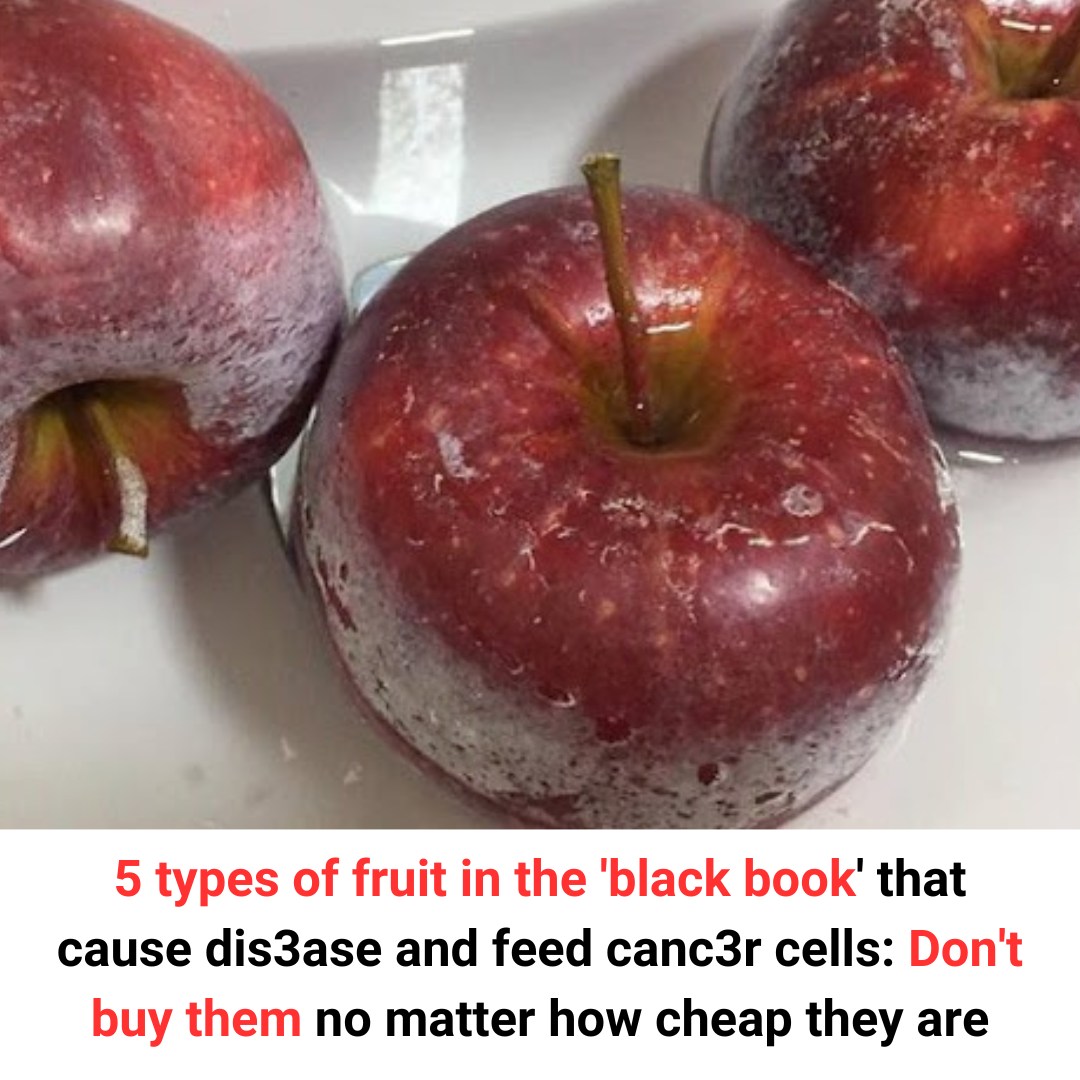In today’s world, buying fruits and vegetables has become more than just a routine task—it’s a matter of health and safety. Shoppers are more aware of where their produce comes from, preferring fruits that are clean, in season, and free from harmful chemicals. However, despite these precautions, certain fruits pose significant health risks and should be avoided or approached with extreme caution. Below are five types of fruits that experts recommend avoiding due to their potential links to severe health conditions, including cancer.

1. Rotten Fruit: Aflatoxins and the Risk of Liver Cancer
Rotten fruit might seem like a bargain, often sold at a fraction of the price of fresh produce. While the exterior might seem salvageable with a little trimming, the danger lies within. Moldy fruit often contains aflatoxin, a dangerous toxin produced by specific molds, which has been classified as a carcinogen by the World Health Organization (WHO).
Aflatoxin doesn’t just disappear when you cut away the visibly moldy parts or even when the fruit is cooked. The toxin remains active and can cause severe damage to the liver, potentially leading to hepatitis and liver cancer.
Additionally, consuming spoiled fruit may cause digestive issues such as nausea, bloating, and diarrhea. No matter how appealing the price may be, it’s always safer to discard any fruit showing signs of mold or decay.
2. Betel Nut: Linked to Oral Cancer
Betel nuts and betel leaves are deeply rooted in tradition in many Asian cultures. However, chewing betel nuts has been directly linked to oral cancer, as confirmed by the International Agency for Research on Cancer (IARC).
The rough texture of the betel nut can cause small abrasions and peeling in the soft tissues of the mouth. These tiny wounds then become vulnerable to harmful toxins present in the betel nut, betel leaves, and often the lime used in the mixture. Over time, regular chewing can lead to chronic inflammation, abnormal cell growth, and eventually, cancer of the mouth and throat.
In addition to the cancer risk, betel nut chewing is associated with gum disease, tooth decay, and permanent staining of the teeth. Despite cultural significance, the health risks make it an unsafe choice for regular consumption.
3. Cold-Stored Tropical Fruits: Nitrites and Cancer Risk
During warmer months, cold tropical fruits become a favorite among many households. However, improper cold storage of tropical fruits like mangoes, pineapples, and papayas can lead to unexpected health risks.
Experts warn that long-term refrigeration of these fruits can cause chemical changes, resulting in the production of nitrites. These compounds are associated with an increased risk of stomach cancer when consumed regularly.
To minimize risk, it’s best to enjoy tropical fruits fresh and at room temperature. If refrigeration is absolutely necessary, ensure they are consumed within one or two days to prevent chemical changes.
4. Wax-Coated Apples: Heavy Metal Contamination and Blood Cancer
Apples are one of the most popular and widely consumed fruits around the world. However, many commercially sold apples are coated with wax to enhance their appearance and extend their shelf life.
While natural wax coatings made from ingredients like beeswax or carnauba wax are considered safe, many producers opt for cheaper industrial wax coatings. These artificial waxes often contain harmful substances such as mercury, formaldehyde, and lead-based dyes.
Prolonged consumption of wax-coated apples can weaken the immune system and increase the risk of leukemia and other blood-related cancers.
To reduce exposure to harmful wax coatings:
- Wash apples thoroughly under running water.
- Peel the skin before eating.
- Purchase organic or certified wax-free apples when possible.
5. Chemically Ripened Bananas: Toxic Residues and Early Puberty Risks
Bananas are loved worldwide for their taste, convenience, and health benefits. However, bananas sold in many markets are often artificially ripened using formaldehyde or ethylene gas.
While natural ethylene gas is produced by fruits during ripening, industrial-grade ethylene gas often contains harmful additives. Formaldehyde, a known carcinogen, is also sometimes used in the ripening process to achieve a uniform yellow color.
Prolonged consumption of chemically ripened bananas has been linked to early puberty in children, digestive problems, and an increased risk of blood cancers.
When purchasing bananas:
- Look for natural ripening signs, such as uneven coloring and brown speckles.
- Avoid overly glossy bananas with unnaturally smooth skins.
- Purchase from trusted vendors or organic sources.
How to Choose Fruits Wisely
To minimize health risks associated with these fruits, here are a few tips to keep in mind:
- Inspect Carefully: Avoid fruits with visible mold, excessive gloss, or unnatural colors.
- Buy Fresh: Opt for fruits that are in season and from trusted vendors.
- Wash Thoroughly: Always rinse fruits under running water before consuming.
- Avoid Long Refrigeration: Store fruits appropriately to prevent chemical changes.
- Choose Organic: Whenever possible, buy organic fruits to minimize exposure to harmful chemicals and toxins.
Conclusion: Health Over Convenience
Fruits are an essential part of a healthy diet, offering essential vitamins, minerals, and antioxidants. However, not all fruits on the market are safe for consumption. Rotten fruits, betel nuts, cold-stored tropical fruits, wax-coated apples, and chemically ripened bananas can pose serious health risks, including cancer and other chronic diseases.
Being informed about these potential dangers empowers you to make better choices for your family’s health. When it comes to food safety, it’s always better to be cautious and informed. Make smart choices, prioritize fresh and natural produce, and remember: your health is worth the extra effort.





